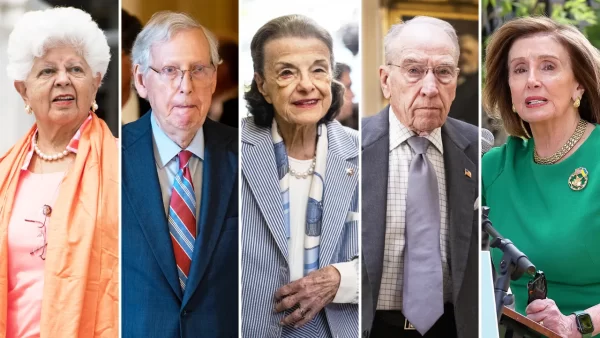Two Parties for Too Long
Sometimes a third voice can be the voice of reason in an argument.
Republicans and Democrats seem to agree only on one issue: keeping control over the country. One of the many crafty ways they stay in power is through the Commission on Presidential Debates. The Commission on Presidential Debates (CPD) sets up and put on the presidential debates. They have the power over who gets to debate and who doesn’t.
The problem? This year, more than ever because of the contentious nature of the election, change must happen. The Commission must either be reformed or done away with because it silences the voices of alternative parties.
According to its website, the Commission on Presidential Debates was established in 1987. The Commission was created in a treaty of sorts between the Democrats and Republicans after debates were sloppily thrown together for the elections of 1980 and 1984. The commission was formed to “…organize, manage, produce, publicize and support debates for the candidates for President of the United States.”
According to CNN , there has not been a third party allowed in the Debates since 1992. Coincidence? Not likely. Intriguingly, the man who managed to get into the debates was an anti-establishment billionaire by the name of Ross Perot. In 1992, Ross Perot debated against Democrat Bill Clinton and Republican George H. W. Bush. Bush lost, and it is quite possible that Perot’s conservative platform was enough to take legitimacy away from Bush despite Perot dropping out. This is likely why Republicans grudgingly accepted Donald Trump as their candidate – in order to keep all the votes on their side instead of losing them to an alternate party.
Why is participating in a CPD debate so important? The answer is simple: publicity. The New York Times records that the most viewed debate was in 1980 with 80.1 million viewers. The 2012 debates were viewed by about 70 million people, proving there is still significant viewership of the debates. If candidates cannot get their ideas to the people, there would be no reason for the people to vote for them regardless of how sound said ideas are.
The Commission on Presidential Debates has a complete monopoly over debates. This means that they can essentially rig it in favor of Democrats and Republicans by keeping others out with decently difficult hurdles to jump over to join the debates.
The commission gained control over this monopoly because it has control over both the major parties, the Democrat and Republican Parties. While the Commission says on its website, “…no sitting officer of either major party has had any affiliation with the CPD and the major parties have no role whatsoever in running CPD or setting its policies”, no Commission Board volunteer said explicitly they belonged to a third party. The Commission on Presidential Debates keeps its monopoly on debates by also keeping costs down for the media. The media could make their own podiums, call up the candidates, and make a stage for their own debates, but the Commission takes those expenses upon itself, thereby saving their campaigns money that could be better spent.
The bottom line? The Commission on Presidential Debates makes it extremely difficult – if not impossible -for a third party to be allowed in the debates. A third party must have 15 percent support in the polls of five different sources predetermined by the Commission, according to ballotpedia.org. A debate should be a way for the people to survey the candidates and decide which candidate has the best policies, without having the candidates already decided for them by an outside group.
In a democracy, one must have many options for the people; otherwise, opinions and ideas which have not already become mainstream will be snuffed out. One could argue these ideas will simply be adopted by a candidate on one side of the aisle in order to get the most voters.What if a Republican adopts one of the third party’s idea and a Democrat takes another equally important idea? Then for whom should one vote? What guarantees the selected candidate won’t just blow off the idea once elected? All an incumbent politician needs to stay in power is for the majority of the public to believe that that person is more than halfway acceptable (as people fear change), and that majority may not include all the initial voters.
The Commission on Presidential Debates must be reformed, but cannot be destroyed because it does give the people a good place to see different opinions and personalities bounce off each other in a contest to prove superiority.
The Commission on Presidential Debates, however, should allow anyone who is on enough state ballots to win the general election to participate in the debates. The only problem with this solution is that the establishment of the two-party system (Electoral College) may shoot down a third party in favor of a Republican or Democrat. This would be an issue for the future, but the beauty of democracy is that things do and must change.










